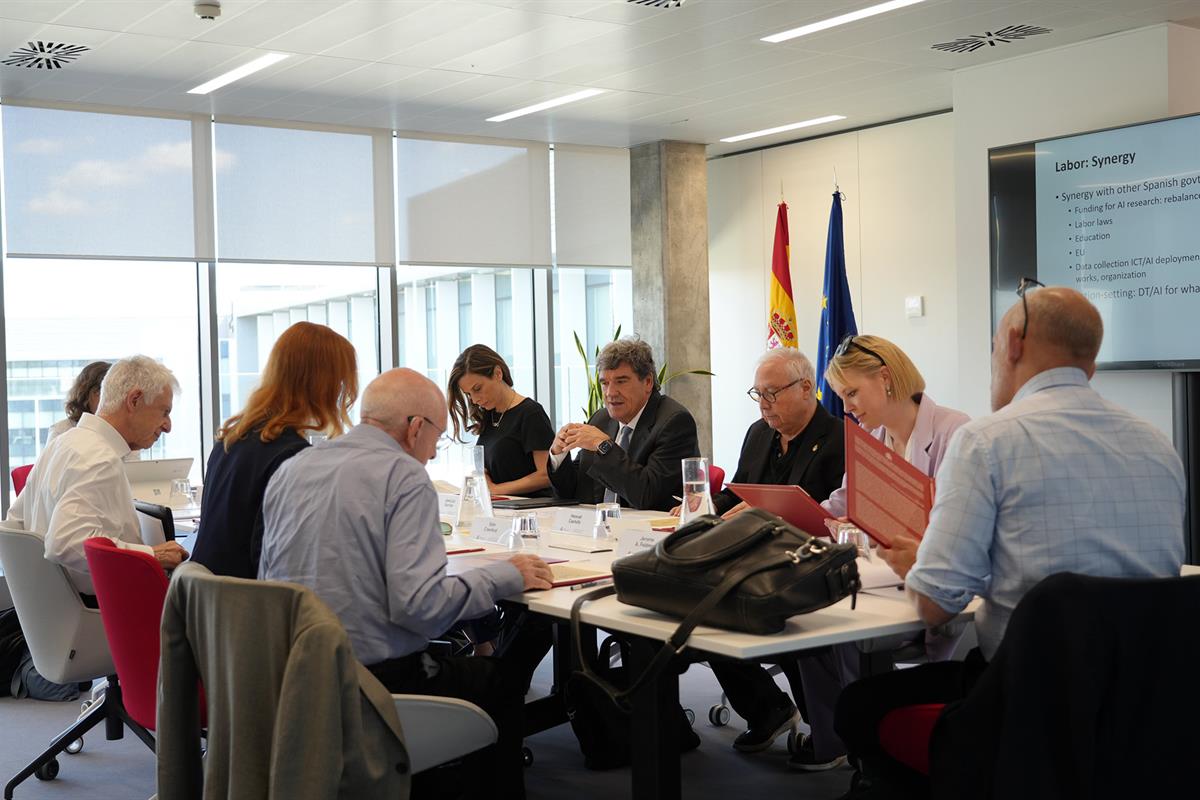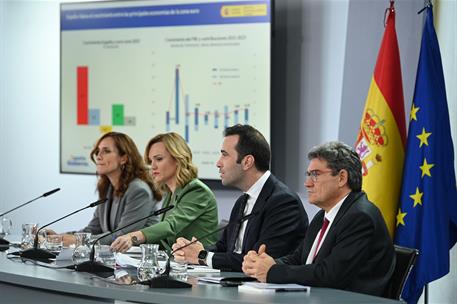 Meeting of the International Artificial Intelligence Advisory Council
Meeting of the International Artificial Intelligence Advisory Council
The Ministry for Digital Transformation and Public Function has set up the International Artificial Intelligence Advisory Council, which brings together leading international experts in Artificial Intelligence and Digital Transformation to advise the Ministry on the key aspects of the development and future of this technology, as well as the potential trends, challenges and opportunities it entails.
The Council is being launched at a time when Spain is stepping up its capacity, with the aim of developing ethical, human-centred and rights-oriented AI, as set out in the AI Strategy approved on 14 May. In addition, the first Council meeting also coincided with the launch of the activities of the Spanish AI Supervisory Agency (AESIA), which will play a key role in overseeing high-risk AI systems and promoting the understanding and responsible use of this technology in Spanish society and economy and whose director general was appointed last week.
At the Council meeting held in person in Madrid on 20-21 June, various issues relating to the deployment of AI in Spain were discussed and examined in depth, including the role that the public sector should play in the development and roll out of Artificial Intelligence, analysing possible new forms of public-private partnership. The different dimensions of AI have also been examined in the context of political polarisation and risks to liberal democracies.
One of the working sessions was devoted to the importance of data used in AI models and systems, and in particular how to combine the use of data with the protection of rights and privacy. Another focus of the meeting was the analysis of both macroeconomic risks in the labour market and technical risks that AI may pose. The ultimate goal is to maximise the benefits of AI while minimising its potential uncertainties.
In addition, the members of the Council held a meeting with Pedro Sánchez at Moncloa Palace to discuss Spain's strategic priorities in this area.
The members of the AI International Advisory Council are:
- Manuel Castells, President of the Council: Professor of Communications Technology and Society at the University of Southern California, Los Angeles, and Professor Emeritus at the University of California, Berkeley.
- Paul S. Adler: Professor of Management and Organisation, Sociology and Environmental Studies at the University of Southern California and an expert in organisational structure theory.
- Francesca Bria: Honorary Professor at the Institute for Innovation and Public Purpose, University of London and former President of the Italian National Innovation Fund. Expert in digital innovation and policy.
- Vint Cerf: Considered the "father" of the internet and recipient of multiple awards, including the National Medal of Technology and the Turing Prize.
- Kate Crawford: Principal Researcher at Microsoft Research and Research Professor at USC Annenberg, expert on the social and political implications of AI.
- Jerome A. Feldman: Professor Emeritus of Electrical Engineering and Computer Science at the University of California, Berkeley and a leader in Computer Engineering and Cognitive Science.
- Luciano Floridi: Director of the Center for Digital Ethics and Professor in the Cognitive Science Program at Yale University. Expert in the ethics of artificial intelligence.
- Jeroen van den Hoven: Professor of Ethics and Technology at Delft University of Technology and Scientific Director of the Delft Institute Design for Values.
- Carissa Véliz: Associate Professor at the Institute of Ethics in AI at Oxford University, author of "Privacy is Power" (book of the year for The Economist).
- Erika Staël Von Holstein: Chief Executive of the Brussels-based independent think tank "Re-Imagine Europe" and expert on AI and political polarisation.
- Niklas Lundblad: Expert in technology policy and responsible technologies, and global manager at Google, with more than 20 years of experience in technology policy analysis and debate.
With this initiative, Spain reaffirms its commitment to the development of AI that promotes productivity in various economic sectors and addresses social and economic challenges in an ethical and responsible manner.
Non official translation






